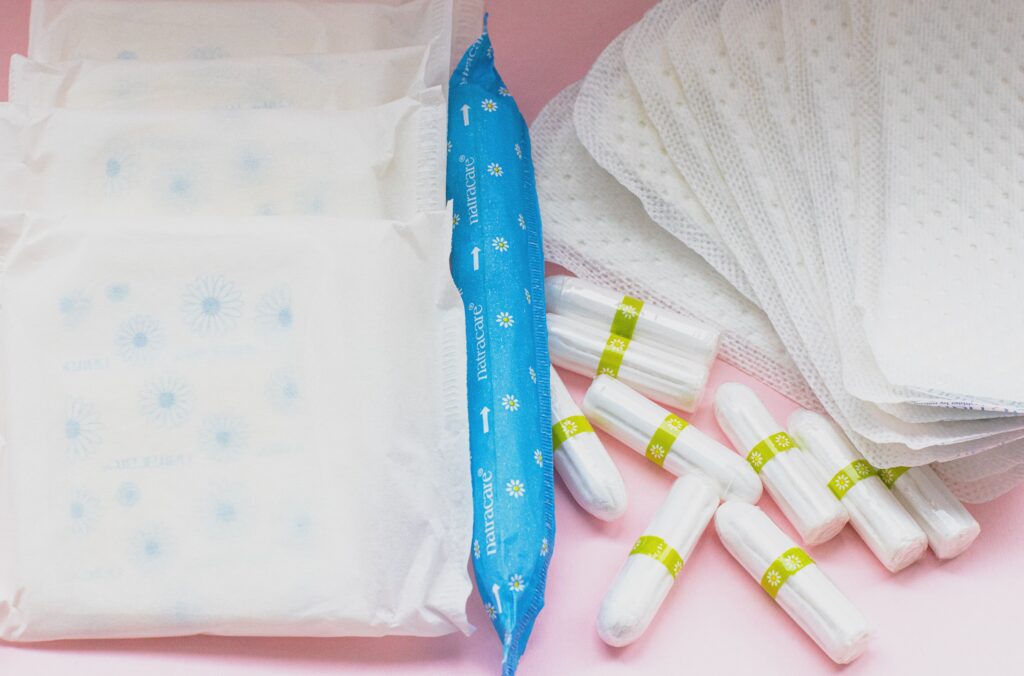Chris Cole distinctly remembers the first time she had to ask for a tampon while experiencing homelessness. Cole, a Street Sense Media artist and vendor, said it brought her to tears.
“It really emotionally brought me down to a new level,” Cole said. “I never thought that I’d have to go to a man, or anyone for that matter, to take care of something that’s so personal.”
But soon, period products may be easier to access for people experiencing homelessness in the District. Councilmember Brooke Pinto introduced legislation in February that would require period products to be available in all District government buildings, shelters and congregate care facilities.
This legislation, the PERIOD Act, builds on a bill passed in January requiring D.C. public, public charter, private schools and post-secondary institutions to provide menstrual products to students.
Period poverty, the struggle to afford and obtain period products due to a lack of income, affects roughly two in five people, according to a 2021 study by U by Kotex. Period products are still subject to sales tax in 30 states —but not the District or Maryland. Food stamps and subsidies under the WIC program do not cover menstrual products.
When Pinto was in law school, a woman approached her and asked to trade — the woman would pay for a portion of Pinto’s groceries, and Pinto would pay for the woman’s period products because SNAP doesn’t cover the item.
“I found that to be so disturbing for so many reasons. Half the population has a period, every month,” she said in an interview. “And it’s a basic health necessity to have access to these products. And for some reason, they’re treated like this luxury.”
Before experiencing homelessness, Cole said she didn’t think about how much period products cost. But now, the cost prevents her from buying products. Cole said the legislation would be incredibly helpful.
“I hope this legislation gets passed,” she said.
Cortney Signor, a Street Sense Media vendor, said having free and accessible period products is essential. More places should also offer underwear in combination with menstrual products, she added. In Signor’s experience, not many shelters provide period products.
“We can’t cut off the resources from the people that truly need it,” she said.
When products are handed out at shelters, it’s usually not the correct type for her flow, Cole said.
“They typically tend to give out just the regulars and stuff like that, which, for me, isn’t really an option,” she said. “I’ve definitely had a hard time finding period products since becoming homeless.”
There are local efforts to bring period products to those in need. Corinne Cannon, the founder of the nonprofit Greater DC Diaper Bank, started the organization to provide basic hygiene products and diapers to families.
She recently started “The Monthly,” an initiative that calls for the collection of pads and tampons to “provide for the whole family,” Cannon said. The Greater DC Diaper Bank works with other local nonprofits and service providers to distribute the products.
“We’re trying to make the work of other organizations stronger,” Cannon said.
When going without menstrual products, there’s a physical and emotional toll
According to a study by Jhumka Gupta, an associate professor at George Mason University, people who cannot afford to purchase period products instead use rags, toilet paper or their children’s diapers. This can cause a variety of complications including urinary tract infections. Using menstrual products for longer than intended can also be dangerous. Leaving a tampon in for too long can cause toxic shock syndrome, which is a rare but serious infection.
Lack of access to period products takes an emotional toll as well as a physical one, Cannon said.
“It is that feeling where you’ve forgotten to put on deodorant,” Cannon said. “You’re very physically aware of your body in a way that makes you uncomfortable … I want people to understand how overwhelming and powerful that is. ”
According to the study by Gupta, people experiencing period poverty were more likely to experience moderate to severe depression, as well.
“We know from the literature that other basic needs when they’re not met, whether it’s having a house or food – that is associated with poor mental health,” Gupta said in an interview.
Periods are getting easier to talk about, but stigma remains
Lysne Tait, the co-founder and executive director of the nonprofit Helping Women Period, which distributes period products to local community partners in East Lansing, Mich., said periods are getting easier to talk about, but the stigma is still there.
The stigma is a factor in why there are few federal resources to alleviate period poverty, as well, Tait said.
“It’s just starting to come into the forefront, people have started talking about it,” Tait said. “States are taking tax off menstrual products, and more people are aware of it.”
Education on menstruation is now also a requirement in D.C. schools under the passed legislation, Pinto said. The State Office of the Superintendent of Schools is tasked with crafting a comprehensive menstrual education. This is aimed to destigmatize talking about periods, she said. The education would start at the fourth grade for all genders.
“It’s just a natural occurrence that really should be celebrated,” Pinto said.
There’s little research on period poverty, said Gupta. This lack is due to stigma, she said. Questions about periods and product access are not listed in national health surveys, as well.
Without data, it’s difficult to make changes, Gupta said.
“If you don’t have the data, then how the people know how to act on it?” Gupta said. “But I think it’s seen as something that’s not as critical for health and well-being. I think it’s about convincing the decision-makers that it’s something that needs to be addressed.”




